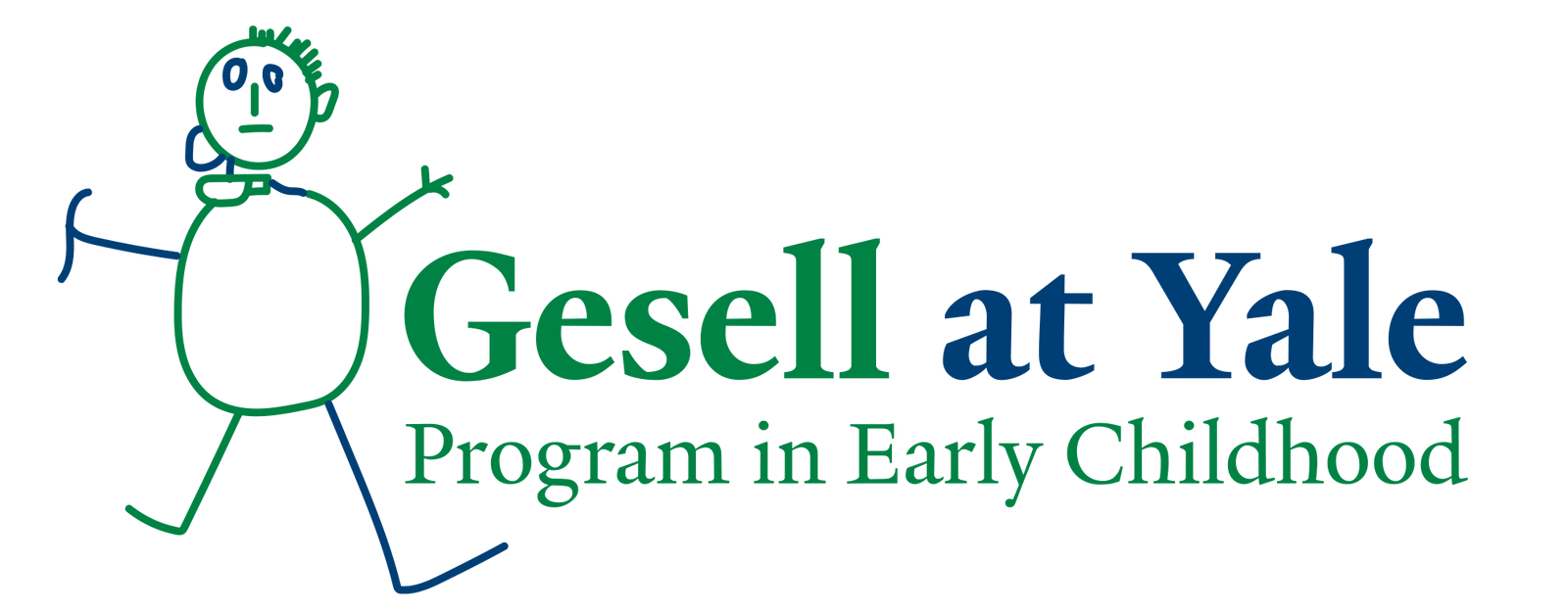Gesell Screening & Assessment System
“If we use effective tools the child reveals himself to all who will stop and listen to what he says and who with seeing eyes will watch what he does.” -- Arnold Gesell
Click below to view a 15-minute video explaining the GDO-R and GES:
The Gesell Assessment System is a research validated and kid-reported “fun” set of screening and assessment tools for educators, parents, pediatricians and other early childhood professionals. Both the GDO-R and the GES ask children to complete a set of tasks such as an interview, drawing, as well as counting and language activities. Through a few enjoyable exercises we can gather much information about a child's overall development. These tools help us to understand the ages and stages of child development, and how they relate to the individual learning and development needs of children.
At The Gesell Program in Early Childhood we assist parents and educators in finding the best match between what individual children need and what educators and parents can offer using our Gesell Developmental Assessment system. Assessment should be intentional and potentially have some benefit to the child. For example, assessment results can help:
- Identify what children know
- Identify children’s special needs
- Determine appropriate placement
- Select appropriate curricula to meet children’s individual needs
- Refer children and, as appropriate, their families for additional services to programs and agencies
- Do you need more information about assessing young children?
Gesell’s experienced staff can also help with communicating the need for and results of these tools with families and the community, through seminars with our trained experts, as recommended by the National Education Goals Panel (L. Shepard, S. L. Kagan, and E. Wurtz, Principles and Recommendations for Early Childhood Assessments (Washington, DC: National Education Goals Panel, December 14, 1998), 5-6. ).
Gesell Developmental Observation - Revised
The Gesell Developmental Observation-Revised (GDO-R) is a comprehensive, multi-dimensional assessment that assists educators and other professionals in understanding characteristics of child behavior in relation to typical growth patterns between 2½ to 9 years of age. It uses direct observation to evaluate a child’s cognitive, language, motor and social-emotional responses. A child’s natural behavior will be assessed against three levels of age appropriate norms (Age Appropriate, Emerging or Concern) and result in a Developmental Age.
Learn more about the GDO-R here.
Gesell Early Screener
The Gesell Early Screener (GES) is a short screening instrument that can “flag” any child who may benefit from further diagnostic evaluation with a tool like the Gesell Developmental Observation (GDO-R). It can identify if a child may be at risk for developmental or learning delays. It does not, however, assign a Developmental Age, as its complementary tool the GDO-R does. The GES is intended for use with children ages 3 to 6.
Learn more about the GES here.
Supplemental Tools
The Teacher Questionnaire (TQ) and Parent/Guardian Questionnaire (PQ) complement both the GDO-R and the GES by providing valuable insight from the individuals who know the growing child best. Parents and educators can work together to understand appropriate expectations to meet the individual needs of each child. The TQ and PQ are intended to supplement the use of the GDO-R or the GES, and are not intended as stand alone instruments.
Choosing the Right Assessment Tools
Do you need more information about assessing young children? For more information about how to chose the right tool, read Assessment and Young Children: What's Really Important
To Schedule a Consultation:
Unsure which tool is right for your needs? Or interested in setting up a seminar with your staff or parents to explain the benefits of using a reliable screening or assessment tool? Please contact us to set up a consultation or for more information on our suite of assessment options.
Is your child being assessed using the Gesell Assessment System? Here are answers to some frequently asked questions:
What should we expect?
For the GDO-R, plan an hour for the full assessment. For the GES, 30 minutes is likely sufficient. Both assessments ask children to complete a set of tasks such as an interview, drawing, as well as counting and language activities. Through a few enjoyable exercises we can gather much information about a child's overall development.
How do I prepare my child for a Gesell Assessment?
A good night sleep along with some time to play and a healthy snack beforehand is plenty preparation. There is no way to “practice” or “get better” at the tasks administered. Children will always show us their authentic developmental stage through the assessment, regardless.
How do we prepare for a virtual Gesell assessment?
Under the best circumstances, Gesell assessments are administered live, one-on-one, with the child. When needed we do find it is possible for an experience examiner to accomplish a virtual administration with validity. It does, however, require the assistance of an adult alongside the child to serve as proxy for the assessor. This will include handing the child the right material at the right time, for example. To be properly prepared to serve as proxy the examiner should provide you with a set of instructions and an explanatory video to watch in advance. Additionally, you will need to gather a few items, like 2 pencils and 20 pennies, all also explained in the preparatory material provided to you.
